FT Executive Education Rankings 2020: analysis amid the pandemic
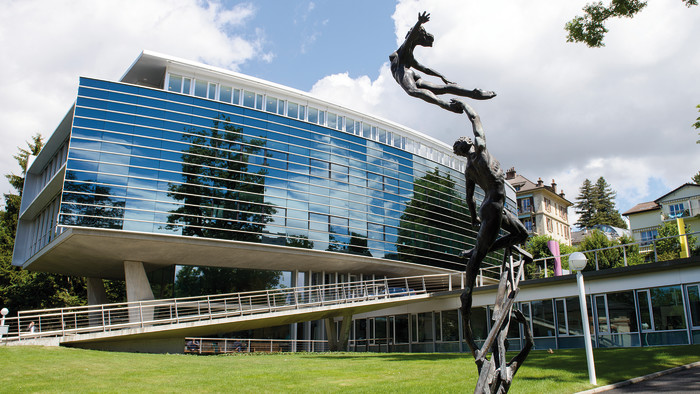
Roula Khalaf, Editor of the FT, selects her favourite stories in this weekly newsletter.
The latest addition to the short courses run by the executive education arm of Grenoble School of Management in France is titled Transformation Management and is described as a programme for leaders, “linking the individual to the collective quest for sense”. In 2020, such training has never seemed more necessary.
Short courses that teach management and leadership skills to companies’ rising stars have been invaluable income streams for many business schools in recent years. The coronavirus has changed all that.
The global university-based executive education market was worth close to $2bn in 2019, and was on an upward curve, according to Unicon, a consortium of 113 business schools providing such courses. But this has come to a juddering halt in 2020.
Grenoble is facing a 25 per cent drop in revenue from executive education, according to Gael Fouillard, the school’s executive education director.
Financial Times Executive Education rankings 2020

Which schools are in the top 85 for customised courses and the top 75 for open-enrolment programmes in 2020? Find out which schools are the top 50 providers for both custom and open courses. Also, learn how the tables are compiled.
“We are still hoping to maintain the activity of our open programmes close to that of 2019,” he says. “In terms of custom programmes, the lockdown has simply stopped the activity for at least two or three months and maybe more,” he adds.
Schools were already increasing the amount of teaching they were providing online, but the lockdown has forced more to move in this direction, and quickly, because of client cancellations of courses and the postponement of face-to-face teaching.

Wharton Executive Education is one of the largest providers of in-person and online executive education in the world. More executives choose to learn with Wharton than any other elite business school in the world, with upwards of 12,000 attending programmes in person and over 50,000 completing online certificate courses in 2019. The school has been investing heavily in online teaching.
Wharton started feeling the impact of the coronavirus in January, when clients from China and other east Asian countries began rescheduling programmes. By early March this had spread to include companies and participants from Europe and the US.
The decline in business caused by coronavirus is significant but has been partially offset by an uptick in online enrolments and by converting some in-person programmes into online courses. This brings its own challenges, according to Mike Malefakis, associate vice-dean of Wharton Executive Education.
“That takes a considerable amount of co-ordination and work, but we are lucky to have such extensive experience delivering online programmes to thousands of learners per year for the past five years,” he says.
It is too early for the school to assess the full impact of the pandemic, but the business education market has become used to crisis management since the turn of the century, Malefakis says.
“Over the past 20 years, the exec ed market has had a few major shocks, post 9/11, [the virus] Sars and of course the 2009 global downturn, and each time it has come back but at a slight reset. “The Covid-19 impact will likewise cause a significant reset into a more creative and blended way of delivering Executive Education.”
The University of California Berkeley’s Haas School of Business developed fully or partially digital alternatives for all of its open enrolment and custom executive education courses up until May. This was much harder than the parallel operation to convert the degree courses into totally online programmes, according to Mike Rielly, chief executive of UC Berkeley Executive Education.
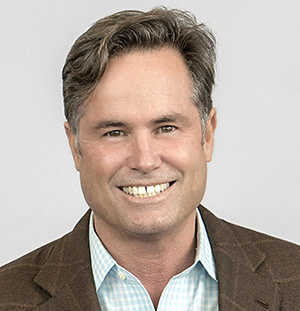
“Senior level executives are not necessarily interested in fully online learning,” Rielly says. “Exec ed pedagogy is also highly interactive and in some instances performance-based, with an emphasis on peer-to-peer networking. Exec ed pricing and audience expectations therefore require a more robust production strategy and quality.”
Adapting to the crisis was essential given that UC Berkeley Executive Education was projected to bring in $35m this year, teaching 5,500 individuals. The lockdown on the campus means the school will have to “re-evaluate those forecasts”, according to Rielly. Since 2016, Berkeley Executive Education has more than doubled revenue and student numbers, he says. “We want that to continue.”
Lockdown is an unnerving change for a market, where meeting face-to-face on a business school campus has long been seen as an important element of the learning experience. The biggest fear is that corporate clients will cancel programmes or take their business to alternative training providers, such as Israeli tech venture Jolt, which runs short skills classes and specialises in live video classes led by tutors.
“You could see a lot of disappointed people and a big hole appearing in executive education revenue this year,” says Andrew Crisp, co-founder of business education research company CarringtonCrisp.
“Part of the benefit of executive education is the small-group experience with intense study. The networking benefits of this form of study are huge and with coronavirus measures that has not been happening.”
However, business schools are rising to the challenge and there are signs that the market will embrace more online delivery if the teaching makes effective use of the available technology.
The University of Oxford’s Saïd Business School’s eight-week short courses have been successfully built as an online business model, for example. The school is now looking to this as a model for how it can pitch its premium senior leadership programmes as online courses that provide as much value, albeit in a different format, as campus teaching.
When the coronavirus hit, there was a willingness to switch from face-to-face to online courses. “While some clients are deferring, others have confirmed their commitment to going ahead, switching to online learning,” says Kathy Harvey, associate dean for MBA and executive degree programmes at Oxford Saïd.

There is also demand for the kind of short course executive education training being taught online, according to research by CarringtonCrisp for LinkedIn. The survey of 1,150 executives across Europe, the Middle East and Africa found that purely online teaching was the most popular option for every age group except, surprisingly, the youngest category, 18 to 24-year-olds.
“The reason why the youngest want face-to-face is because they value the networking, meeting people who may be associates for many years, and online just does not cut it,” says Crisp. “For the older groups, however, they are time pressured and commitment pressured with families so you can see why online learning, with an added degree of flexibility, is more appealing.”
Executive education has evolved constantly to keep abreast of developments in business and technology, but coronavirus is accelerating changes in the way courses are delivered that course providers cannot afford to ignore.
Top for customised programmes: Iese
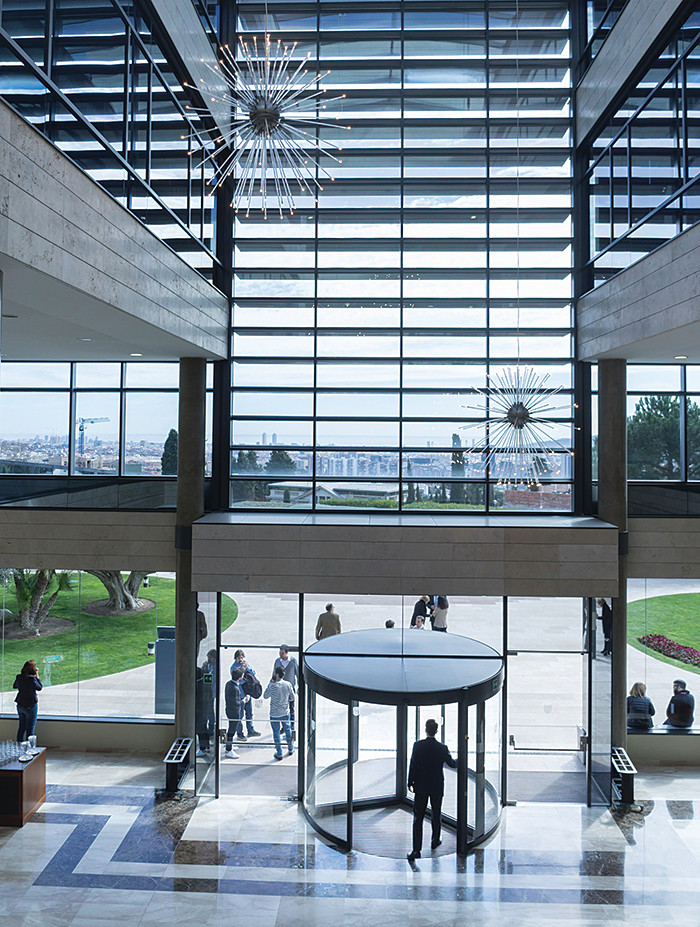
Iese in Barcelona is number one for the sixth consecutive year in the ranking of custom programmes. It is also 10th for open-enrolment courses. As a result, the school tops the 2020 FT combined ranking of leading 50 schools for executive education. The school is in the top five for 13 of 15 assessment criteria and, notably, top for international clients and faculty diversity. “We have strong trust in the Iese faculty and design team,” says one corporate client.
Top US school: Duke Corporate Education

Duke Corporate Education has slipped two places to fourth but is the leading school in the US. Having topped the FT table for a record 12 years from 2003 to 2014 and held second place in the custom ranking in 2018 and 2019, it remains in the top two for value for money and the top three for teaching methods, international clients and overseas programmes. “We chose Duke to ensure we had world-class content delivered by world-class faculty in a sustainable way,” a customer says.
Top in Latin America: Ipade
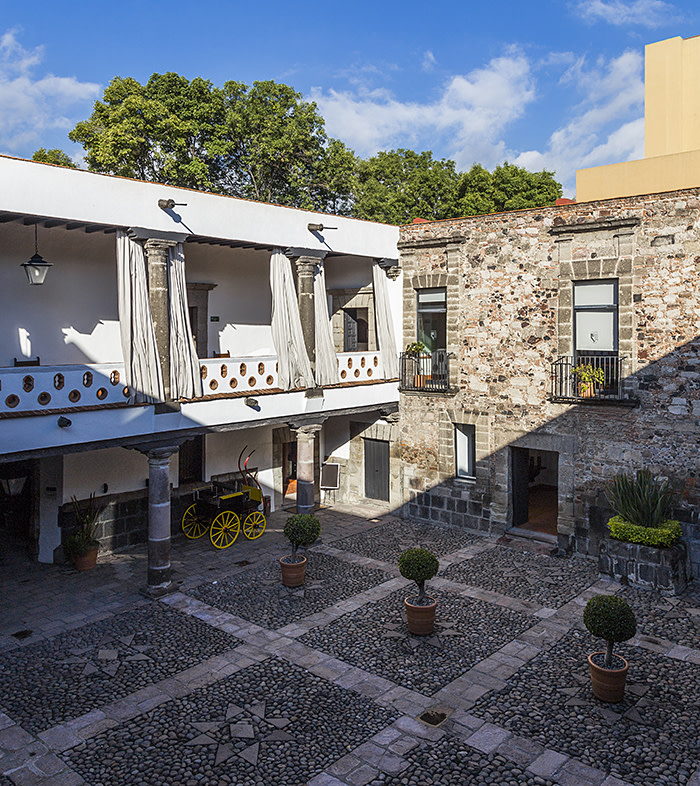
Mexico’s Ipade comes top in Latin America for custom programmes out of eight ranked schools in the region. The school, which is up three places to 13th, is in the top five for preparation, new skills and learning, and also for facilities. Positive reviews from clients in the corporate survey were important in lifting it to first place among Latin American schools. Clients were particularly enthusiastic about employees’ motivation after finishing courses and the humanistic perspective of the programmes.
Biggest jump: Imperial

Imperial College Business School in London has risen 22 places to 42nd in the custom ranking. The school performed well in the growth and faculty diversity categories. Other schools that have made big leaps include France’s Skema Business School, which rose 18 places; University of Chicago: Booth, up 16 places; and Católica Lisbon School of Business and Economics, up 15 places. “[Imperial College] has well-customised materials to meet specific needs of our business,” says one client.
Highest newcomer: Skolkovo

Moscow School of Management Skolkovo is this year’s highest new entrant, in at 44th place for custom programmes and 62nd for open-enrolment. The school was founded in 2006 by business leaders and is proud of its futuristic campus. It is rated fourth in custom and first in open for growth in revenue. Clients praise the quality of courses and the mix of western teachers and Russian practitioners with a good understanding of the local environment.
Top for open programmes: IMD

IMD is the top provider of open-enrolment courses for the ninth year running. The Swiss school ranks among the top five for 10 criteria and heads the table for teaching methods and materials. One former student says: “It really matters that the faculty can rope in industry leaders, so that participants can also see practical implementation of the concepts, rather than feel that it’s coming from an academic [and wonder] ‘what does he/she know?’”
Top in Asia: Kaist College of Business

The South Korean school is 24th in the open-enrolment table — its highest position in the past four years. It is also ranked sixth for international location — the extent to which courses are run outside the school’s base country and region. “Kaist professors have a lot of passion,” says one participant surveyed for the ranking, while another praised the opportunities for “good networking among professionals in different industries”.
Highest riser: Copenhagen Business School
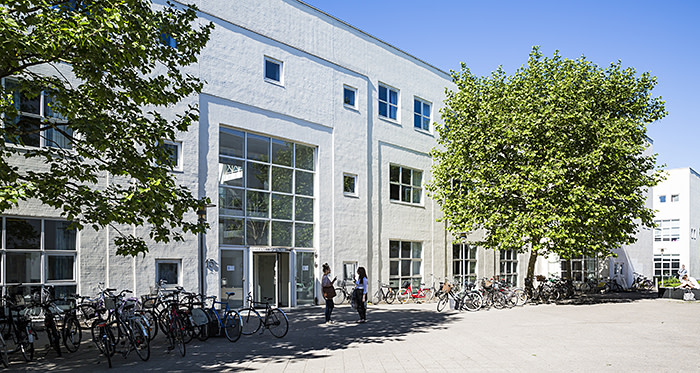
The Danish school is the highest riser in the open programme ranking — up 14 places from last year to joint 55th (tied with the Indian Institute of Management Bangalore and Argentina’s IAE Business School). Copenhagen’s appearance in the 2019 open ranking also helped propel the school to 27th place in the European business schools ranking last year — one of its highest positions in 10 years. A participant praised the integration of “real-life cases” for one of the school’s “well-prepared” courses.
Profiles by Leo Cremonezi, Wai Kwen Chan, Tatjana Mitevska
Comments